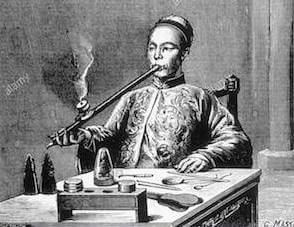Mr. Brennan has been notified on the error reported here using Seminole v Florida which says the tribe cannot sue to make the State enter into a "good faith" compact and Kickapoo v Texas which states the Secretarial Procedure Regulations are invalid under IGRA.
Aquinnah casino given fighting chance
As Lakeville voters go to the polls today to vote on whether to host an Indian casino, a national expert who once called the shots on Native American gambling said federal officials will have no choice but to approve a casino for the Wampanoag Tribe of Gay Head (Aquinnah).
Harold Monteau, former chairman of the National Indian Gaming Commission under the Clinton administration, said he is watching with interest Gov. Deval Patrick's hard-line stance against negotiating with the Aquinnah and says the state is risking millions.
Because Massachusetts has legalized Class III gambling, both of the state's federally recognized tribes — the Aquinnah and Mashpee Wampanoag — are entitled to Indian casinos under the Indian Gaming Regulatory Act, Monteau said. Had Congress wanted to exclude the Aquinnah, it had complete authority to do that as part of the act, he said.
Monteau initially made his comments about the Aquinnah tribe's rights in the comment section of the Martha's Vineyard Times. He reiterated those thoughts this week in a telephone interview with the Times.
"There's probably not going to be any excuse for the (secretary of the Interior) to treat the Martha's Vineyard tribe differently than the Mashpees," Monteau said.
"I think the secretary of the Interior is going to be between a rock and hard place if the state continues to refuse to negotiate in good faith. He's going to come down on the side of equal protection."
The state's position has been that the Martha's Vineyard-based tribe waived those rights in a 1987 land deal approved by Congress. Tribe lawyers contend that federal law supersedes the land settlement.
It's an issue that appears bound for federal court and, if it winds up there, Monteau's money is on the Aquinnah.
"The secretary is going to come in and look and see what you're doing with other entities," Monteau said. In Massachusetts, Patrick is actively negotiating with the Mashpee tribe for a casino in Taunton.
Federal law requires a governor to negotiate with a tribe in good faith, or the Department of the Interior can provide the tribe with permission to open a Class III facility. Thus far, Patrick's office refuses to give the Aquinnah a seat at the table.
If the federal government intervenes for the Aquinnah, the state could lose out. "The state won't be able to take a piece of the revenue, which I think will be a major mistake," Monteau said.
Cheryl Andrews-Maltais, chairwoman of the Aquinnah tribal council, said she hopes Patrick is listening.
"When you have someone of his background, of his expertise and caliber — someone not related to us in this venture — saying what he is saying, you would hope the state would take a step back and come back from that hard line," she said.
Jason Lefferts, a spokesman for the state Executive Office of Housing and Economic Development, responded that the state's position has remained unchanged for 15 years and that the two tribes are in "fundamentally different" situations.
"We are not interested in picking winners and losers in this situation," he said.
The Aquinnah tribe has been increasingly frustrated by the Patrick administration's unwillingness to negotiate and the effect it has on their ability to convince local communities they are for real.
"Making an educated and informed decision in 90 days on hundreds of millions of dollars is enough, never mind the curve ball that it's gaming and entertainment," Andrews-Maltais said. "Then you're throwing in the corkscrew curve ball of Indian gaming. It allows for a lot of fear and misinformation."
The legislation "set clear deadlines for all participants," Lefferts said.
Andrews-Maltais was upbeat about the potential for a "yes" vote in Lakeville, but realistic that the state's deadlines haven't given the tribe enough time to outline the plan to townspeople.
The tribe wants to make an initial investment of $167 million for a resort casino on 500 acres straddling Lakeville and Freetown.
Even if Lakeville follows Freetown's lead and votes "no" in the nonbinding referendum, the Aquinnah project is not dead, she said. The tribe will continue to do outreach in the communities and pursue its rights through the federal process, she said.
Meanwhile, the tribe reaffirmed its vote to use its community center on the island for a Class II casino, she said. The tribe has gotten initial approval of its gaming ordinance from the National Indian Gaming Commission and will begin holding meetings on the island to outline its plans after the state deadline of July 31 passes, Andrews-Maltais said.
The Aquinnah could open a Class II casino with so-called bingo slots on its Vineyard reservation now and begin reaping the benefits of federal law without giving the state any of the revenue, Monteau said.
Except it's not true!
A lawyer for the town of Aquinnah has said the tribe has no authority to use the land for Class II gaming because of its land settlement — so again the issue is likely headed to court.
However, there is precedent for a tribe to open a Class II facility without giving the state a dime. In Florida, the Seminoles reaped billions until finally reaching a compact with the state governor in 2010.
"We still want to try to work with the state, but we should be able to expect we'll be treated fairly," Andrews-Maltais said.
Monteau predicts there will eventually be two Indian casinos in Massachusetts. Monteau said federal law is on the tribe's side.
"Ultimately, the winning position for the Aquinnah is to go ahead and do a small operation on the island and put some money in the kitty so they can fight the big fight," he said.






No comments:
Post a Comment